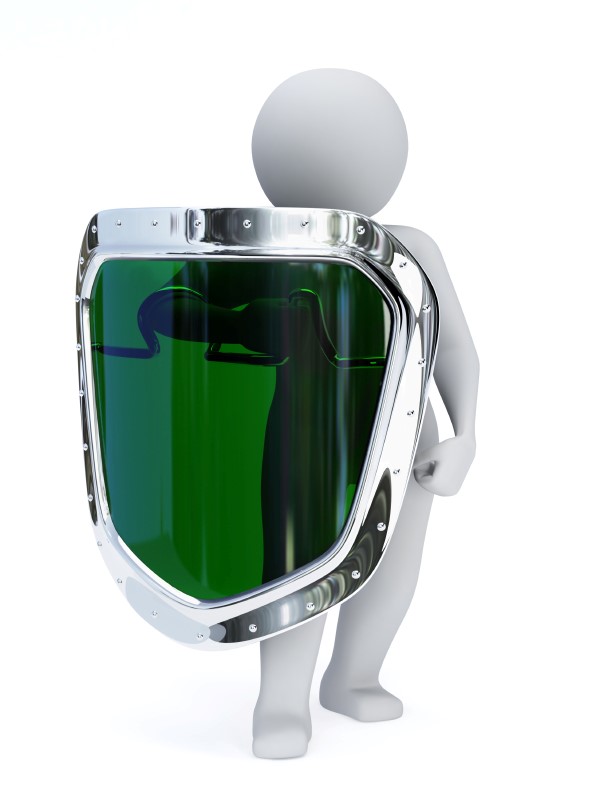 As a Guest Blogger for Simon Associates Management Consultants, I recently wrote about my experiences as an Enneagram Type 8, then found myself struggling with writing a second, follow-up blog. I finally realized that what I was experiencing was not typical writer’s block but the result of my Type 8’s natural defense mechanism: denial.
As a Guest Blogger for Simon Associates Management Consultants, I recently wrote about my experiences as an Enneagram Type 8, then found myself struggling with writing a second, follow-up blog. I finally realized that what I was experiencing was not typical writer’s block but the result of my Type 8’s natural defense mechanism: denial.
What is a defense mechanism?
A defense mechanism is a protective, psychological strategy whose function is to keep us within our own comfort zones. It is primarily triggered in uncomfortable or difficult situations in an attempt to reduce our anxiety or uncomfortable feelings.
The purpose of a defense mechanism is to maintain our self-image, and each Enneagram Type has a different one. In my case, my defense mechanism keeps alive my self-image of “I am strong and not weak.” Typically, our defense mechanisms operate automatically and unconsciously. Unless we are in observer mode, we aren’t aware of when they are active.
How denial helps you avoid painful feelings in order to survive in an unfair world
Denial is the refusal to accept a certain reality, thought or feeling. Its purpose is to protect the ultra-sensitivity and vulnerability that is buried beneath an outer veneer of strength and control. Denial is a simple process. I ignore and filter out any information that contradicts my preconceived ideas of what is needed to survive in an unfair world. In order to avoid painful feelings of weakness and powerlessness, I kill them. As a result, what I deny simply does not exist, enabling me to feel safe and comfortable again.
For example, when I think about blog topics, I immediately wonder what the people most important to me, both friends and colleagues, will think about them. My stomach churns from fears of judgment, criticism, rejection and powerlessness. It feels like too much to bear! Acting like a red flare signaling danger, my gut sends urgent commands to my internal army. These metaphoric soldiers quickly mobilize, surround and isolate my uncomfortable sensations. Then, they hunt down and kill every last one of the offending enemy. Mission accomplished! The negative feelings no longer exist because they are all dead. Even though this battle takes place quickly, it uses a considerable amount of my energy.
Denial comes in a variety of forms. In addition to deleting any strong negative feelings, I may:
- deny the reality of unpleasant information altogether.
- admit that something is true but deny or minimize its seriousness.
- admit that both the information and its severity are true but deny any personal responsibility for it.
- divert my attention. Instead of feeling uncomfortable or experiencing pain, all of my focus and energy is poured into something enjoyable.
The impact of denial, positive and negative
Denial isn’t always negative. It also:
- provides me with strength during a crisis. By shutting down intense feelings, making decisions during difficult times becomes easier.
- helps me to accomplish difficult tasks. Where others see problems and challenges as a major impediment, denial minimizes them and makes it easier to take required action.
- provides me with energy. Because denial mobilizes the “internal army”, it provides a surge of intense energy that naturally leads to action.
Of course, denial also causes problems for me. Over the years, it has left a sense of deadness inside and has covered me with a thick layer of emotional armor that only intensity can pierce. While seeming to provide protection, denial also:
- stops me from feeling and disclosing my true feelings to others.
- keeps me from developing deep relationships.
- blocks good feelings as well as painful ones.
- fools me into thinking that the problem is outside of me. It encourages me to believe that I am the innocent victim who will be treated unfairly unless I strike a preemptive blow against the suspected perpetrator (i.e. my definition of the REAL problem).
The “cure” for denial is to recognize it and then choose to experience the pain it tries to alleviate
Over the last several years, that has been the path of my personal development. Gradually, I have developed the ability to be present with it. With patience, the denial process subsides and I can now access a new wealth of feelings and sensations. New, better ways of being and relating are now possible.
Denial will always be with me as an integral part of my personality. But now, I am learning how to recognize it as it happens. Rather than letting it control me, I consciously choose whether or not denial is beneficial in any individual circumstance.
Defense mechanisms by Enneagram Type:
Ones use reaction formation to avoid anger and to maintain a self image of being right.
Twos use repression of personal needs and feelings to avoid being needy and to maintain a self image of being helpful.
Threes use identification to avoid failure and maintain a self image of being successful.
Fours use introjection to avoid ordinariness and maintain a self image of being authentic and unique.
Fives use isolation to avoid emptiness and maintain a self image of being knowledgeable.
Sixes use projection to avoid personal rejection and to maintain a self image of being loyal.
Sevens use rationalization to avoid suffering and to maintain a self image of being OK.
Eights use denial to avoid vulnerability and to maintain a self image of being strong.
Nines use narcotization to avoid conflict and to maintain a self image of being comfortable or harmonious.
I sincerely hope my sharing generates curiosity about your own defense mechanism and how it operates in your life. As I wrote in my last blog for SAMC, let me know if this helps you in your journey, whatever it may be. I’d love to hear from you!



